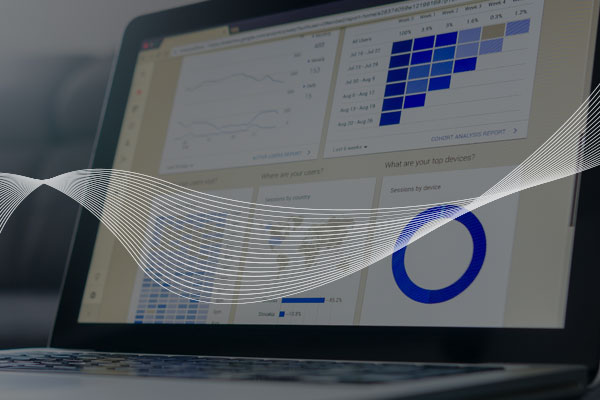What is Deal Management?
By Zilliant
Aug 05, 2022
Table of Contents
Deal management, or agreement management, is the business process of setting, maintaining and renewing customer-specific pricing agreements. This is done in collaboration between a B2B company’s pricing and sales teams.
What is B2B Deal and Agreement Management?
We define agreements in this article as the specific price list that a customer negotiates that falls outside of the company’s standard price list or matrix. Customer-specific agreements can be long-term contractual agreements. They can also simply be the discount a customer expects to receive for some period of time on a set of products.
Deal management encompasses every aspect of the agreement lifecycle – from negotiation to creation to updates to renewals. Agreements exist in most B2B companies, and can be managed in a variety of ways: everything from manual and ad-hoc to fully automated, centralized cloud-native systems. These processes are sometimes handled within the configure price quote (CPQ) software category or managed directly in an ERP. But agreement management functionality is not a key focus or mature capability within the CPQ software category.
Read more: Deal & Agreement Management
What Agreement Types Exist in B2B?
Broadly speaking, agreements tend to take one of two forms in a B2B environment – customer-specific price exceptions and customer contracts.
Customer-Specific Price Exceptions
Customer price exceptions are designed to win business from a variety of non-strategic customers. Often, little analysis is done when setting exception prices in a high velocity sales environment. These agreements may cover a large or small range of products or product categories and there is rarely a data-driven process for price review.
Customer Contracts

These are reserved for the larger and most strategic customers, the ones who represent a major share of revenue. Often these customers have signed, physical contracts that are negotiated over a long period of time and closely scrutinized internally.
The breadth of products and services tends to be massive, and the contract undergoes an annual price review in most cases. Pricing issues are thus more easily spotted, but sales teams guard these agreements closely and push back on price increases with these strategic customers.
Watch: Finding & Fixing Margin Leakage in Customer-Specific Pricing
Why are B2B Contracts Hard to Manage?
As mentioned above, most B2B companies have a deal management process of some kind. Most are complicated and woefully inadequate to handle the volume of agreements and speed of cost changes in the market. Here’s a typical scenario:
A large paper products distributor has more than 100 sales reps selling possibly hundreds of thousands of product SKUs to thousands of customer accounts. As they go about their day, reps encounter customers asking for a better price, or the rep intuits that a discount is required to win the business. The seller creates a spreadsheet with special pricing for the customer and a sales manager approves it.
The pricing is often set up as a markup over cost, discount from list or as a net price. In some cases, the pricing does not have an end date. Once the prices are loaded into the distributor’s ERP system, they are rarely revisited.
This process repeats itself across scores of sales reps and hundreds of customers, creating an administrative nightmare. Worse, it is a recipe for margin leakage over time.
Not only were the special prices created without bottom line consideration, but these agreements also set a pricing precedent with customers. They are nearly impossible to govern or mass update inside an ERP system. “Most B2B pricing agreements are older than Noah and expire when the sun burns out," said Zilliant Vice President, Services Brooks Hamilton.
Other time- and resource-wasting issues that exist in most agreement management processes include:
- Significant time spent updating agreements: The pricing team typically emails spreadsheets with recommended price changes to the sales team. The sales team then modifies the numbers and passes the spreadsheet back to the pricing team for approvals. It can be difficult to update prices for cost pass-through, as this often involves multiple rounds of tedious internal negotiation before being presented to the customer.
- Volume commitment compliance challenges: Some customer agreements are tied to volume commitments. When agreements are managed in spreadsheets and ERP systems, companies lack a systematic approach to monitor and enforce volume commitments.
- Sub-par initial price setting: Done in haste when winning the deal is the primary motivating factor, prices tend to be set below the floor and inconsistently across customers. This causes widespread pricing dispersion and misalignment.
- Set-and-forget conundrum: Price exceptions are often created without end dates or set in net price terms at a fixed dollar amount. As costs rise over time, margins are squeezed. This is compounded by a lack of regular review or automated insights into agreement health.
- Administrative issues: These agreements tend to live in a variety of systems, on hard drives, or in email inboxes. There is no easy way to quickly locate and mass update agreements; it’s a customer-by-customer process.
- Strategic misalignment: As B2B companies adopt corporate pricing strategies and invest in better pricing tools, exception prices get in the way. Pricing exceptions fall outside the pricing team’s control and are often misaligned with the go-to-market pricing strategy.
- Difficult to update: Simply knowing how many agreements exist in your business and how profitable they are is nearly impossible. When prices need to move, an agreement-by-agreement, line-by-line change is costly, time-consuming and error-prone.
- Inability to set prices at different thresholds: Your strategy may require a certain product margin at the product category or SKU level. Dispersed agreements and manual processes limit the level of granularity you can achieve.
Read more: Why B2B Manufacturers Need Both Intelligent Pricing and Deal Management
What is Intelligent Deal Management?
B2B manufacturers, distributors and services companies are finding that status quo deal management processes are no longer feasible. Best-in-class deal management solutions can:
Centralize all agreements Ensure new agreements are created at prices that reflect the customer relationship and margin goals Provide a mechanism for mass updating agreement lines Facilitate seamless communication between pricing, sales and end customers

Here’s how forward-thinking B2B companies are proactively and intelligently managing agreements across the entire deal lifecycle:
Deal Creation
Upon the creation of a new agreement, it’s imperative to ensure there are pricing guardrails and streamlined workflows in place. Sales reps can’t possibly know how each price change they make impacts profitability.
This is especially true when the number of lines in one agreement measures in the hundreds. They need reliable price guidance at the time of deal creation. Sales managers and pricing teams must ensure any questionable price change requests are quickly routed for approval.
B2B companies deploy modern deal management solutions to provide their commercial teams with actionable and intelligent pricing recommendations. These solutions ensure agreements meet both corporate strategies and customer expectations.
Communicating Price Changes
Sales teams need to be made aware of price changes, with context and justification to be confident delivering price changes to customers. A better process starts with the pricing team. It needs to be proactive in its approach to communicating necessary agreement price changes. This means removing manual processes and focusing sales on the most impactful price changes.
An investment in a centralized agreement management solution that seamlessly connects to ERP systems and price management software provides immediate returns. No longer are these teams having to rely on spreadsheets to catalog agreement data, execute price changes or decipher customer profitability.
Pricing teams can instead communicate agreement price changes in an automated, scalable fashion. Sales reps are only alerted to specific agreement lines to update, or agreements that are about to expire. This in turn empowers sales reps to better communicate with their customers, improving the health of each buying relationship.
The best deal management solutions include configurable action cards for sales reps. Action cards alert them to renew agreements, make price changes and follow up in times of low volume compliance.
Managing Existing Agreements and Renewals
B2B companies are dealing with an influx of cost changes. As the speed and frequency of cost changes accelerates, companies need to update pricing within customer agreements. They also must quickly disseminate them to the sales team for action. Gone are the days of combing through ERP records to change each customer agreement line.
A better approach to managing existing agreements and renewals is powered by a configurable dashboard. This dashboard comes with action cards to alert sales reps when specific agreements or agreement lines across customers need their attention or review. Sales reps are alerted about agreements that are:
Nearing expiration Failing to meet a volume commitment Needing a price change
Agreements can be updated at once, en masse, or one at a time and synched back to an ERP system. If necessary, you can submit the updated agreements for approval. Additionally, problems with existing agreements, such as missing end dates and net price terms, can be quickly diagnosed and rectified.
Read More: Retaining Share in Ambiguous Market Conditions
Streamlining Approval Process
Regional sales managers often identify customer agreement pricing that needs to be adjusted to meet margin targets. While helpful, this serves as another block in the flow of pricing updates. Here, the process can also be smoothed and expedited with deal management.
Before price changes necessitate an approval process, sales reps can now review the health of each agreement as it is created. Price changes now come with intelligent price guidance at the time of deal creation. This remedies the issue of ad-hoc price changes without visibility into margin impact.
If the price of an agreement falls below a certain margin target or "pricing floor," certain approval processes can be triggered. Deal management software allows sales teams and deal desks to review and approve agreement price changes, complete with an audit trail.
Read more: Managing Deals When Demand Patterns Go Wildly Off-Script
Intelligent Deal Management Example
The sales operations team at a global packaging company dealt with an increase in cost changes coming from thousands of suppliers. It could no longer rely on manual processes to update prices as costs changed, nor could it effectively deliver pricing guidance for agreements. As most business is transacted on customer-specific agreements, the importance of accounting for cost changes quickly is significant. The company needed a way to automate the price change and agreement management processes.

The distributor implemented Zilliant Deal Manager™ to facilitate real-time communication between pricing analysts and sellers. Deal Manager™ empowers the company to conduct a wide variety of automated campaigns across millions of agreement lines. This can be scaled across different warehouses, regions and sales leaders. The system seamlessly integrates with Zilliant’s price optimization and management solutions to update agreement lines that meet corporate objectives.
“We are committed to understanding our customers’ needs and providing solutions that add value. TheZilliantplatform helps our team deliver AI-enriched guidance to sales representatives that is customized to the unique circumstances of each customer interaction,” said the company’s vice president of field initiatives and sales enablement.
What are the Benefits of Deal and Agreement Management Software?
Companies that adopt intelligent deal and agreement management software report major benefits, including:
Recapturing margin leakage: Replacing manual spreadsheets with centralized cloud-native software helps maintain and improve the profitability of customer agreements and contracts. Removal of guesswork: Sales reps will know immediately which agreements need to be addressed and how. When creating new agreements, pricing guardrails are provided at the point of creation. No more “set-and-forget”: Agreement pricing is no longer created and filed away without a systematic means to update them as prices need to change. Simplified processes: Pricing teams have a systematic approach to update customer price agreements quickly and as often as needed. Sales reps have intuitive pricing guidance, line by line, when updating agreements to stay on target. Pricing teams and sales managers receive only the agreements outside of pre-determined pricing bounds, reducing internal backlogs. This streamlined approach significantly reduces how quickly updated pricing agreements can reach the customer without sacrificing margin or a fair price. Sales enablement: Providing new hires with a deal envelope and guidance better equips them to make profitable decisions. Agreement line-level margin signals let new reps see when they are pricing outside of margin bounds. They can adjust accordingly without intervention or setting prices too low with customers. More informed decisions: Embedded visual analytics provide sales with the context to make the right pricing decisions. Analytics convey why price changes are recommended, the health status of the customer relationship and the overall profitability of each agreement
Read more: Mitigating Sales Workforce Shortage in Building Products Manufacturing
Watch: Zilliant Deal Manager - Powerful Agreement Management Solution



